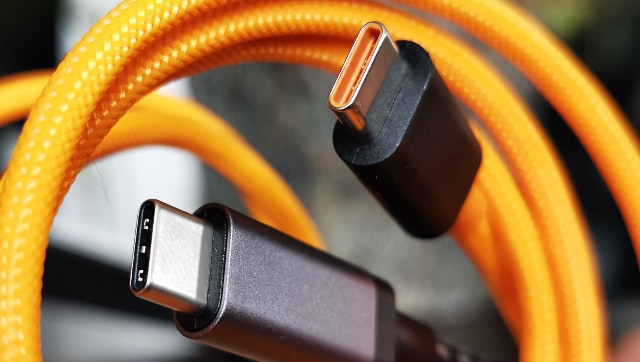FP StaffNov 17, 2022 12:25:40 IST
The Union government has decided that India will finally be moving to adopt USB-C as the standard charging port for all smart devices going forward. This means that all smartphones, tablets, smartwatches and other smart home appliances need to be compatible with the Type-C port going forward. The timeline, however, for each of these devices, is yet to be decided.

India will need two types of standard charging devices, one for smartphones and various other portable devices such as laptops and tablets, and another for cheaper feature phones, which have a larger market share. Image Credit: Pexels
The decision was taken after stakeholders reached a consensus at a meeting of an inter-ministerial task force set up by the Union government, consumer affairs secretary Rohit Kumar Singh said Wednesday. The government held wide-ranging consultations to standardize charging ports for all compatible smart devices, but it is yet to reach a decision on chargers for low-cost feature phones.
With universal chargers and ports, consumers will no longer need a different charger every time they purchase a new device. Besides, the move is also expected to reduce the massive amounts of e-waste.
In 2021, India is estimated to have generated 5 million tonnes of e-waste, and was only behind China and the US, according to an ASSOCHAM-EY report titled Electronic Waste Management in India.
“During the meeting, a broad consensus emerged among stakeholders on the adoption of Type-C as a charging port for electronic devices such as smartphones, tablets and laptops. Further, it was deliberated that a different charging port may be adopted for feature phones,” Singh added.
Many advanced economies are moving towards standardising charging devices and ports. The EU seeks to make USB-C port as the standard for all devices. On 7 June, the EU passed provisional legislation requiring smartphones, including Apple’s iPhone, to be equipped with a USB-C port for wired charging by mid-2024.
A key concern for India is that once the EU makes the shift, obsolete phones and equipment could be dumped here, as has been observed in the past.
Wednesday’s meeting was attended by representatives of the Indian Institute of Technology Kanpur, Maharaja Agrasen Institute of Technology, the Confederation of Indian Industry, the Federation of Indian Chambers of Commerce and Industry and the Ministry of Environment, Forest and Climate Change. The consumer affairs ministry has also formed a separate sub-group under the task force to examine the feasibility of uniform charging ports for wearable devices, such as smartwatches.
Stakeholders agreed on a phased roll-out of uniform charging port for “effective implementation and easy adoption”, adding: “Industry should overcome inertia in adopting a uniform charging port in the interest of consumer welfare and prevention of avoidable e-waste,” said Singh.
An impact study is likely to be conducted by the environment ministry to “assess and examine” the impact of a changeover to uniform charging port on e-waste generation, the second official said.
The Union government is of the view that the country should move to two types of standard charging devices, one for smartphones and various other portable devices such as laptops and tablets, and another for cheaper feature phones, which have a larger market share.
With a policy for common universal chargers, officials hope, phone manufacturers do not need to ship chargers in the box, as consumers will already have the requisite chargers and charging accessories, which would further help them in saving costs.
India to finally adopt USB-C as the standard charging port for all smart devices,
Philippines Pandemic
Post a Comment